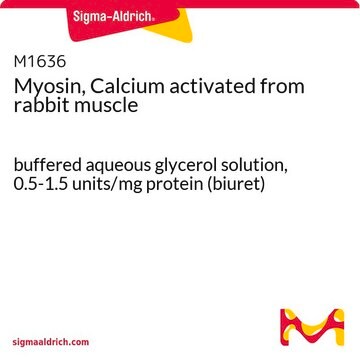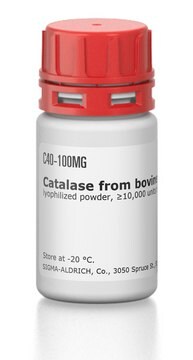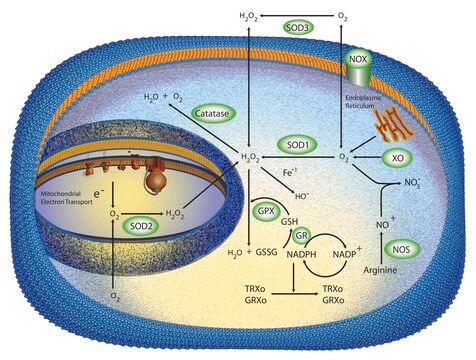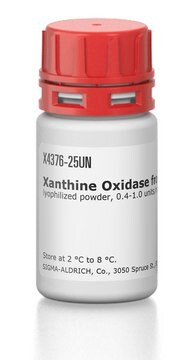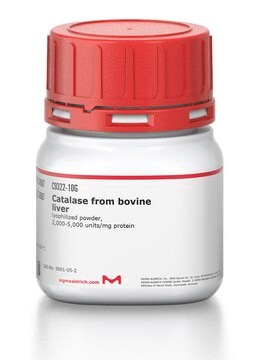T2400
Tropomyosin from porcine muscle
lyophilized powder (contains Tris buffer salts)
Iniciar sesiónpara Ver la Fijación de precios por contrato y de la organización
About This Item
Productos recomendados
biological source
Porcine muscle
Quality Level
assay
≥70% protein basis (biuret)
form
lyophilized powder (contains Tris buffer salts)
technique(s)
electrophoresis: suitable
storage temp.
−20°C
General description
Tropomyosin is a member of the actin filament binding protein family. It is a ubiquitous protein present in animals and fungi. Tropomyosin is made up of two α-helical chains arranged as a coiled-coil. It exists over twenty isoforms, in different eukaryotic cells like skeletal, cardiac, and smooth muscles, brain, platelets, fibroblasts, platelets, and other non-muscle cells.
Application
Tropomyosin from porcine muscle has been used:
- as a positive control in actin- α-tropomyosin (TPM1) co-sedimentation analysis and assay
- in analyzing the anti-adhesive properties of fish tropomyosins
- in far Western blot analysis
Biochem/physiol Actions
Tropomyosin is associated with the actin cytoskeleton and plays a role in stabilizing and regulating the interactions of actin with other actin-binding proteins. It also plays a role in muscle contraction by regulating the interactions of actin with myosin.
Tropomyosin together with troponin, regulates the binding of myosin to actin. Tropomyosin is a dimeric coiled-coil protein forming continuous polymers along the myosin-binding groove of actin. Various tropomyosin isoforms help confer structure and function to actins in the cytoskeleton and striated muscle function. Dimeric protein that assumes an α-helical coiled-coil conformation. In the absence of Ca2+, it inhibits muscle contractility by blocking the myosin binding sites on actin.
Analysis Note
SDS electrophoresis shows two major bands.
Storage Class
11 - Combustible Solids
wgk_germany
WGK 3
flash_point_f
Not applicable
flash_point_c
Not applicable
ppe
Eyeshields, Gloves, type N95 (US)
Certificados de análisis (COA)
Busque Certificados de análisis (COA) introduciendo el número de lote del producto. Los números de lote se encuentran en la etiqueta del producto después de las palabras «Lot» o «Batch»
¿Ya tiene este producto?
Encuentre la documentación para los productos que ha comprado recientemente en la Biblioteca de documentos.
Nuestro equipo de científicos tiene experiencia en todas las áreas de investigación: Ciencias de la vida, Ciencia de los materiales, Síntesis química, Cromatografía, Analítica y muchas otras.
Póngase en contacto con el Servicio técnico

